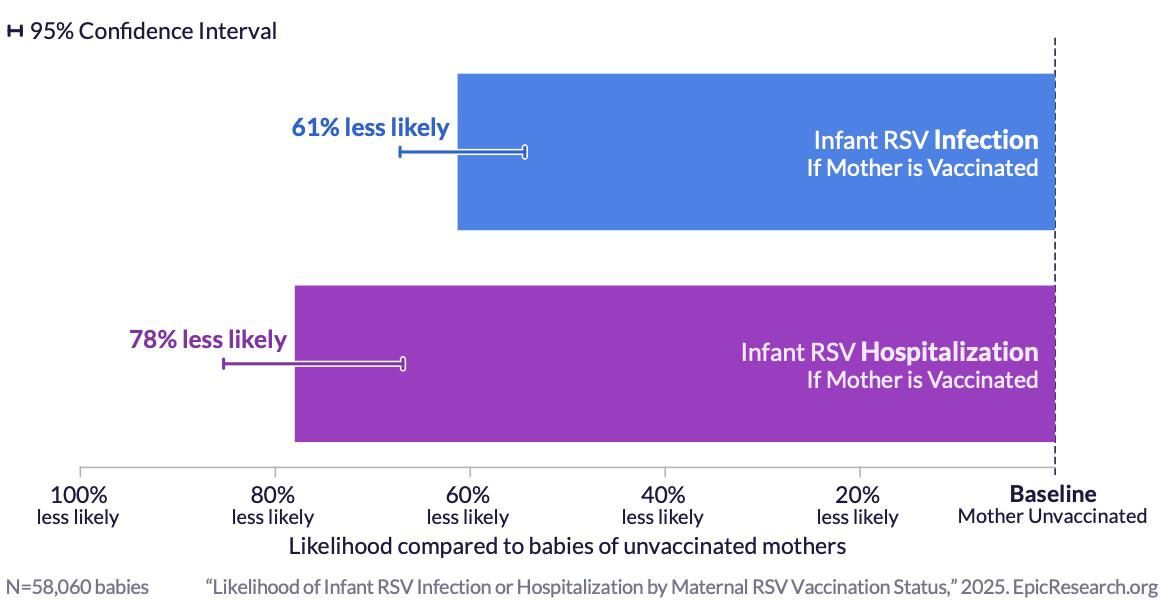Shorts and Follow ups including AI and RSV vaccine
January 31, 2025
1. AI takes (a lot) of humans
Many worry that artificial intelligence will eliminate millions of jobs. Here are a few preliminary observations about how the need for humans to interact with and supervise artificial intelligence suggests that AI is likely to change jobs substantially, but not likely to lead to lower employment at least in the near term and maybe not even in the long run.
KFF Health News reported last week that hospitals that have implemented AI algorithms for decision making have found that these programs need to be monitored carefully, and they degrade quickly unless they are trained on new data. The title of the story is “Health Care AI, Intended To Save Money, Turns Out To Require a Lot of Expensive Humans”.
The New York Times reported a few months ago that the AI-driven autonomous vehicle taxi company Cruise employed 1.5 FTEs for every car it had on the road in San Francisco before it wound down operations.
Past giant technologic leaps also eliminated many jobs. For instance, telephone operators were replaced with electronic switches, and secretaries were displaced by word processing and electronic calendars. In both instances, many people lost their jobs but total employment increased. The adoption of AI might prove similar.
B. Artificial Intelligence lets nonexperts do cardiac ultrasounds
Speaking of AI, JAMA Cardiology reports that an AI tool allowed people with little training to perform ultrasounds of the heart. Cardiac ultrasounds are complicated, often take 45 or more minutes, and provide a treasure trove of data to guide the care of patients. Ultrasound technologists are in short supply; technology tools can help increase access and lower costs.
3. Health tech fundraising focuses attention on AI
Source: Rock Health, January, 2025
Yet more on AI. Rock Health reported that over one-third of venture capital investment in digital health in 2025 was related to artificial intelligence, although funding remained lower than in the banner year of 2021. StatNews reported that venture capital investment in digital health is off to a robust start in 2025. This includes investments of $141 million in a company that develops AI agents for clinical tasks, $105 million for a company that automates surgical workflow, and a new $500 million fund to invest in AI-related health care innovation.
4. RSV vaccination in pregnancy protects newborns
Source: Bartlett, K et al Epic Research Network January 21, 2025
Researchers from the Epic Research Network, using electronic medical records from over 58,000 newborn deliveries in 2024, showed that maternal vaccination with RSV vaccine in late pregnancy was associated with a 61% decrease in infection and a 78% decrease in hospitalization of newborns. The vaccine is recommended in the last part of pregnancy for women who are due during RSV season (September through February). The vaccination also provides protection for the pregnant woman and is less expensive than a monoclonal antibody available for newborns. RSV leads to 58,000 to 80,000 hospitalizations of children under age 5 each year in the US. Here’s a link to a post from when this was approved in Fall, 2023.
Hope you have a nice weekend!


